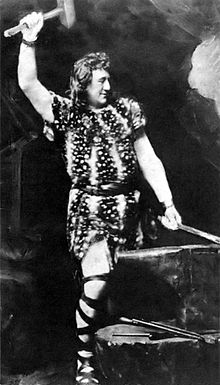The busy holiday season has struck once again. Between all of the gigs, the baking, the ugly sweater parties, and the traveling, we still somehow have to find time to practice. The gigs will certainly help keep us in shape, but since it is rare that those are our only obligations, we are forced to find creative ways to squeeze productive practicing into our busy schedules. Whether it be from lack of endurance, lack of time, or neighbors who do not appreciate you playing through Mahler 3 at 11:00 at night, there are any number of reasons why we may not be able to practice according to our usual routines. And let's face it, sometimes we just need a day off from playing to let our bodies rest. It is times like these that I am a particular fan of productive practicing without playing the instrument itself.
Finger/Air the Music
Much of the time that we spend cleaning technical passages is devoted to coordinating our fingers with our tongues. Finger through these passages without playing in order to listen for your coordination. Listen for clean valve changes without being distracted by your sound from the bell. Finger through while airing the part to improve coordination between fingers and tongue. There is no need to waste precious endurance when much of your work can be done silently.
Sing/Buzz
Sing or buzz through your parts to ensure that you are hearing the correct pitches and intervals. Many times when we miss something it is a result of not being able to hear the pitch properly in relation to the surrounding pitches. If you can sing and/or buzz it (and you're using the correct fingerings/technique), you should have little trouble playing it.
Listen
Take the time to listen to recordings. Turn on your favorite recordings when you're driving from one party to another and sing along with them (yes, without words). Familiarity with a work can remove much of the frustration associated with learning something new. Even if you cannot listen to a specific piece on which you are working, listen to other works by the same composer or another composer of similar compositional style. Combine listening with a little score study to really maximize your productivity (not while driving, of course).
Practicing tonguing
Practice your multiple tonguing as you walk around. Many of our coordination issues without "t's" and "k's" are best improved upon away from the instrument anyway. If your tongue gets tied in knots while double tongue a string of 8th notes on a single pitch, go back to the basics. Take things slowly and work with just your tongue and a metronome without complicating things by adding an instrument into the mix.
Do nothing
Give your ears, mind, fingers, and body a break. Instead, read a book, watch a movie, learn to knit, pet a kitty, do yoga, meditate, take a nap, meet a friend for coffee, go for a drive. Do ANYTHING but think about playing. We can be so busy and driven that it's easy for us to forget to chill every now and then. If you don't have time to practice, maybe it's a good time to take a break anyway. Warm up as you need to in the morning, play your jobs as required, and put the instrument away long enough to recharge your batteries a little.
Read
Take a few minutes to catch up on the latest Horn Call, or another music journal, to see what you've been missing in the horn world. You may learn something new, or at the very least be reminded of a technique or exercise that you can use in your own playing.
Blog
Writing here is one of the ways that keep myself honest with my playing. If I have the audacity to advise others to do something, it would be awfully hypocritical of me to not follow my own advice. Sometimes I realize that I need a little reminder myself and writing it down makes it seem as though the words are coming from an external source. It's harder to ignore your nagging shoulder angel when anyone can read about it.





